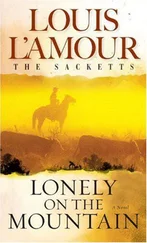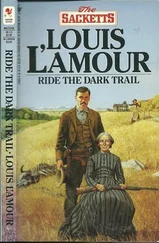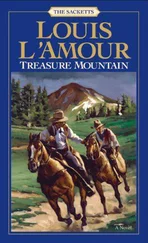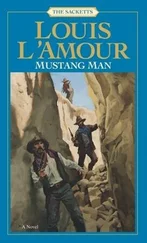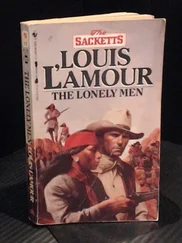He knew her then, which explained the peculiar way he had looked at her when he had seen her that first night. He had probably recognized her at once. "It is imperative," she told him quietly, "that I reach St. Petersburg." She kept her voice low so that the driver would not hear. "It is even more important that I reach there unknown to Siberian officials." The pitifully thin lips smiled. "I am a poor convict, Madame. I have seen no one ... only a wandering hunter who bandaged my wounds and went away ... who knows where?"
By the evening of the third day the wind had died and LaBarge directed Liakov to make the tarantas ready for travel at daylight. Liakov glanced at the convict. "What of him?" he asked. "We will turn him over to the police?"
"The safest thing for all concerned is to say nothing. This is police business. The police will ask many questions. They will be pleased at no one for interfering."
The morning dawned gray and cold. While Boyar aided Liakov with the harness, LaBarge stood by the bunk. He handed Marchenko a fistful of rubles. "These will help. My advice to you is to get away from here, even if you have to lie in the snow. I've left some tea on the table, and a bit of cheese and bread." Outside the cold was piercing. The carriage started stiffly, but the horses were eager to go after their confinement and soon they had broken into a run. Several times they were forced to stop and remove trees blown across the road, and fifteen miles from the cave they came to their first halt-where they quickly changed horses and started off with a fresh team and driver. Glancing back as they pulled away, LaBarge saw Liakov staring after them. "You are worried about Marchenko?"
"I hope he escapes, Helena. I hope he does."
"He is very weak."
"But his heart is strong."
With such a one there was always a chance. How about himself? Would he have the fortitude to stand what Marchenko had stood? Could he survive? Would he lose his will to escape? If Liakov went to the police... As if to atone for the past, the clouds drifted away and the sun appeared. It was spring and here and there the . hillsides showed a bit of green under the grays and browns. Twice they stopped to change horses, each time remaining with the volni system of free horses. The free drivers were known to the police, of course, but a man was harder to trace by that method than by the post system. Often the volni drivers were weeks in returning to their home villages, which meant weeks before they could be questioned.
The villages were as alike as peas, gray lumber and weather-beaten logs, a hint of decoration at the eaves. The few people who moved about were bundled to the eyes in odds and ends of clothing.
The steppe had changed to pale green with here and there the golden yellow of wild mustard or buttercups. The driver pulled off the muddy road to the prairie and drove more swiftly, crushing grass and flowers under the spinning wheels. He was a younger man, this driver, and filled with good spirits. He sang as he drove, and seemed to know everyone along the road. He shouted at them and they shouted back. Several times they raced past trains of wagons whose drivers plodded beside them, and several times they raced for miles over plains that were blue with a carpet of forget-me-nots. Distant hillsides were thick with the slim white trunks of birch, and always the villages kept appearing, shutters hanging loose, gates sagging. They drove on and on with a succession of teams and drivers until all sense of time was lost and all was forgotten but their own spinning wheels, and the never-ending shouts of drivers who raged, cajoled, praised, petted and swore at their teams.
From Tiumen to Ekaterinburg the road was bordered on either side by a double row of splendid birches nearly eighty feet tall, set so closely their branches arched over the road and shut out the sun with their green canopy. This was known, Helena told him, as "Catherine's Alley," for the trees had been planted by the order of Catherine II, and now, almost a hundred years later, they offered shade to the traveler.
The peasants' huts were alike in their cheerlessness except for occasional flowers in the windows. Rarely was there a tree or blade of grass in any of the villages, but in the windows one saw geraniums, oleanders, tea roses, cinnamon pinks or fuchsias.
Then came the night when they slept in a two-story brick house near the river where the owner advertised "rooms for arrivers." LaBarge was awakened in the first gray of dawn to find a rough hand on his shoulder and bending above him the thin, cadaverous face of an utter stranger. He sat up quickly and the man stepped back. LaBarge glanced toward the connecting door to Helena's room. "It's all right," the man said. "I tell you, mate, I've touched nothing, and as for the lady, I'd bother no lady, mate. Not I." "What are you doing here? How did you get in?"
The fellow stood with his feet apart, grinning. His nose was a great beak, his red, wrinkled neck like that of a buzzard, and his eyes, small and blue, twinkled with a cynical humor. "How did I get in, you ask? Through the door, mate, through that very door. Locks, you know, I've no time for them, and I'd no wish tg go knocking about on your door at this hour of the. morning. Start folks looking, you know, and maybe start them thinking." "What do you want?"
"Now that's more like it. I like a man who comes to the point. But it ain't so much what I want, mate, as what you need. It's the police, mate, and they're hunting you. You, the lady, and the sailorman who's with you." "Sailor?"
"Aye ... spotted him at once, I did. And you likewise, mate. I've seen a bit of the sea myself, seven year' aboard a lime-juicer out of Liverpool. It's where I learned my English. But if I were you I'd be getting myself up." Jean rolled out and dressed quickly. He had no idea who the man was, but a warning was a warning, and that the police were looking for him was more than likely.
"What is it?" LaBarge asked. "What makes you think the police are looking for me?"
"This is the way of it, mate. I've no love for the law, not to speak of, I ain't. Time to time they've given me a bit of trouble, so when I seen the man in the black coat, seen the wide jaws and bullethead of him, I says to myself, it's the law. So I listen...
"Inquiring, he is, for people of your description. Now I'd seen you arrive, knew where you'd gone and, thinks I, this man and his lady would like to know, so I've come."
"Where's the officer now?"
"Eating, he is. Eating better than I've eaten these many weeks, stuffing his fat jowls in the town, and when he's finished that, had a bit of tea and picked his teeth, then most like, he'll be after you."
"We'll need a team for our tarantas."
"They'll be ready for you, mate. Leave it be. A boat's better, and I've spoke to a man for you. He's owner of a barge, and he's made room for us." "Us?"
"Look, mate. I've nothing here I can't leave behind, and I'd best be leaving it, too. With a bit of cash I might make it, and if I come along with you, I might be helping you." He winked. "I'm one who says it will never go wrong with a man to help the gentry."
Coolly, Jean checked his pistols. To be taken now was not part of his plan. He slid the pistols into his waistband.
The man with the great nose and twinkling eyes glanced at the pistols and then looked up at Jean LaBarge. He had a sudden feeling that he would not like to face a pistol backed by those eyes and in those hands. "Gentry, you said?"
"Did you think I'd not notice the lady? And a beauty too, if I may say so..."
Helena came through the door, dressed for travel. She looked gay and excited.
"Why, thank you! That was nicely said!"
The ruffian bowed, his eyes twinkling. "A lady, I said, and you, sir, anybody can see you're a gent." He canted his head at him. "And maybe a soldier, too, but a fighting man in any course. Take that from me, as one who knows." When Boyar entered the room, LaBarge explained their situation hurriedly and the man led them out the back way, across the court and into one of the sheds that surrounded it. Here he lifted a board and they all emerged into an alleyway that ended in a field bordering the river. Walking along a path, half-concealed by a line of trees, they reached the stream and boarded the barge. A man seated on a bollard got to his feet, knocked out his pipe and came aboard.
Читать дальше


